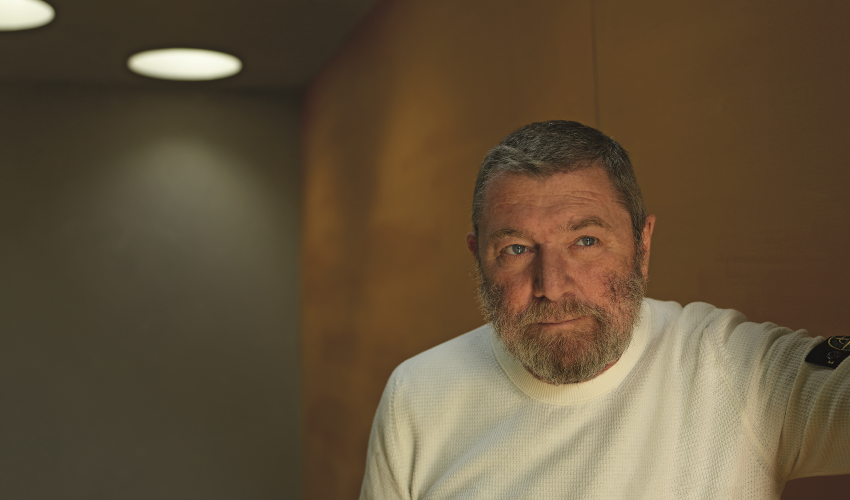
Sold Out in Eight Seconds
CARLO RIVETTI IS THE BOSS OF STONE ISLAND. HE EXPLAINS HOW HE HAS CHANGED THE CREATIVE PROCESS OF THE STREET FASHION BRANDThere are no geographical boundaries and multiculturalism is an absolute value; there are no limits but only challenges; there are no rigid formalities, but personal relationships instead. This is the philosophy of Carlo Rivetti, Bocconi alumnus and chairman and creative director of Stone Island, the casual fashion brand born out of GFT, the Italian textile conglomerate that revolutionized mass fashion in the 1980s by manifacturing Valentino and Armani prêt-à-porter collections, as well as introducing the uniform size system in Italy. Between his two jobs, Rivetti clearly has a preference for the second one. With a position that is unique in its kind, the entrepreneur tells us about the subtle balance between business and creativity.
➜ Style and turnover, how do you balance it out?
In the 1980s there were no rules, creativity was everything. It was enough to have a good idea to start selling. This hasn't been true for a number of years: consumers have evolved, they know the trends, have access to international shopping channels, so it has become necessary to get in the field and raise one's antennae, come up with new strategies, and offer a kind of creativity that can be clearly perceived by people. For this, eight years ago I chose to replace the position of fashion stylist with a diverse team of creative people, identified for their differences in experience, training and culture. I wanted Stone Island to be like the harmony coming out of a choir: each member of the creative team interprets the project through their own codes and provides unique value. Then I engineered the business process: each collection comes with a briefing that lists price scales, number of items per model, and usage features. These are the fixed points of the stylistic process.
➜ How do you create harmony in your creative team?
By repecting people and creativity itself. A good work-life balance is paramount, because the best ideas are born when this condition is achieved. And then worksharing, organizing company trips around Europe where things are happening, and involving the team in discussions with Simon Foxton and Nick Griffiths, our English experts in street trends.
➜ The first Stone Island jackets were made using truck tarpaulins, now it's the time of thermosensitive fabrics. How much are you investing in testing for new materials?
We invest 7% of our turnover in R&D: we have a dyeing establishment equipped with state-of-the-art technology. The most exciting aspect, however, is when out of research unexpected worlds arise, from which extraordinary synergies can emerge. An example? One day I was in a nautical shop and found ropes made of dyneema, a lightweight, super-durable material that is usually used for cables of the large suspended bridges. I contacted the company that owned the patent and with their collaboration I created a stunningly new collection.
➜ What are the new channels for selling creativity?
Flash sales. In collaboration with Supreme, the street-style store in New York, we managed to beat a record: sell a whole capsule collection in just eight seconds. It was called Prototype Research, and was a line of limited-edition, hand-made garments, yet to be produced on an industrial scale. This experiment allowed us to test the materials and their manufacturing to industrialize the process and then apply it to other collections.
➜ You have created objects of desire..
Absolutely yes. But that's not all, we have stimulated a parallel economy: some of our resellers also bought at the sale, and in the following days managed to resell capsule items at significantly higher prices in their stores.
by Allegra Gallizia
Translated by Alex Foti
